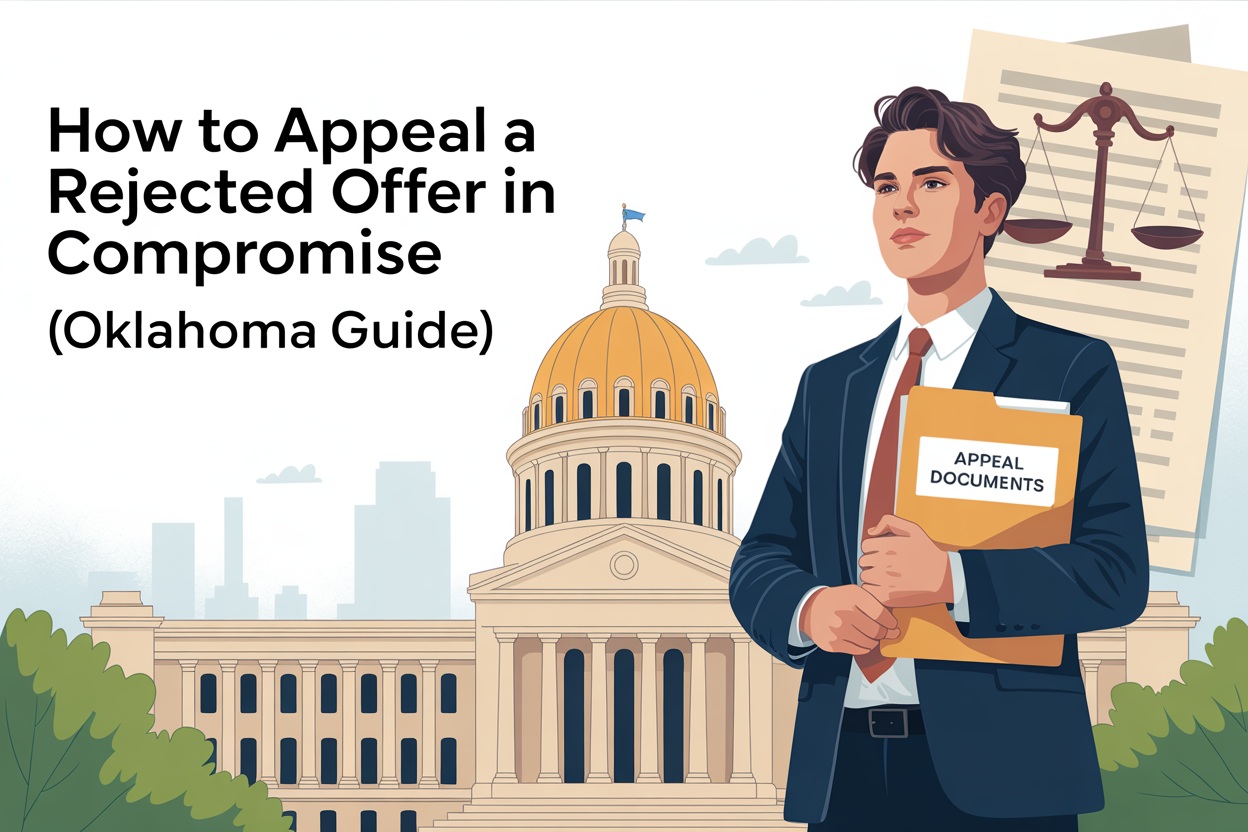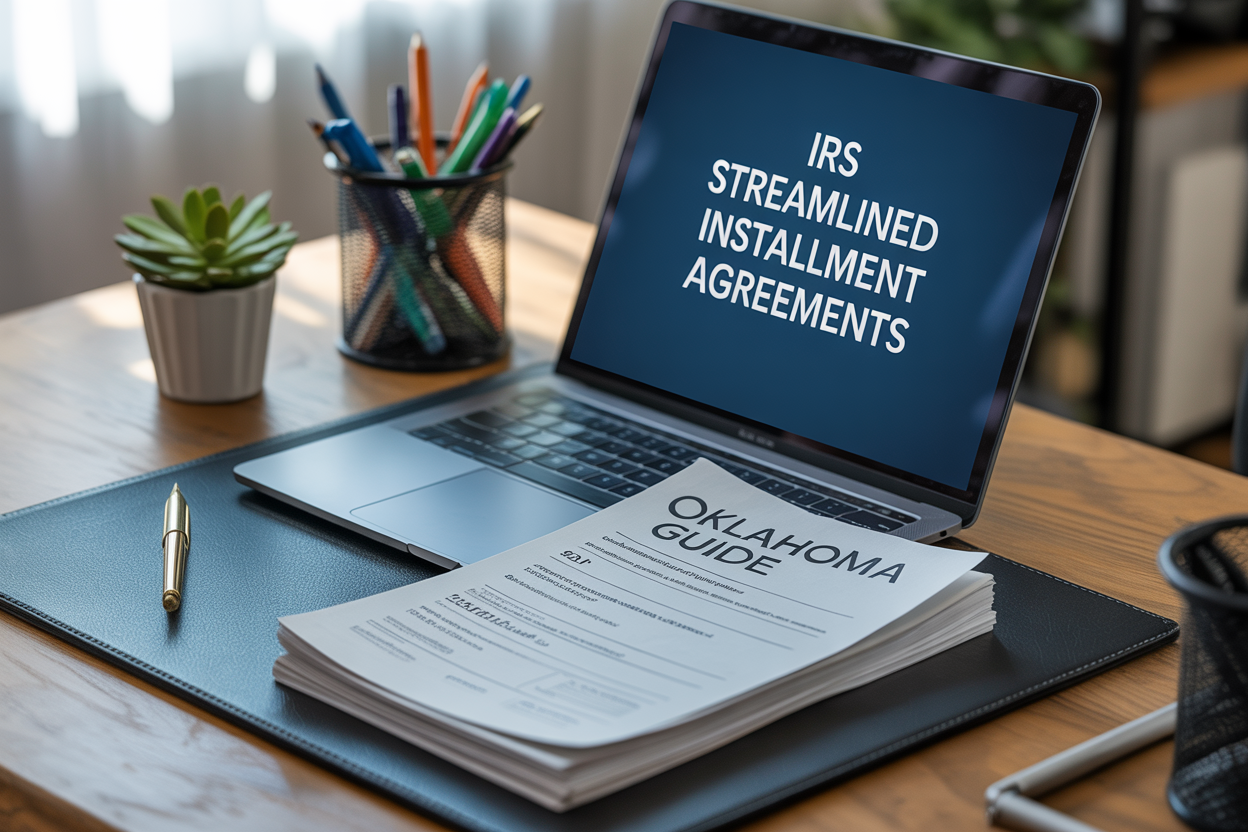How to Appeal a Rejected Offer in Compromise (Oklahoma Guide)

Getting your IRS Offer in Compromise (OIC) rejected is frustrating — especially if you believed you were a strong candidate.
But here’s the good news: a rejection doesn’t have to be the end.
At Boulanger CPA and Consulting PC, we help Oklahoma taxpayers challenge unfair OIC rejections and turn denials into successful outcomes.
In this guide, you’ll learn why offers get rejected, how to appeal, and what your options are if you can’t get approved.
Step 1: Understand Why the IRS Rejected Your Offer
When the IRS denies an Offer in Compromise, they must send a written explanation. Common reasons include:
- They think you can afford to pay more
- Missing or outdated financial documentation
- Inconsistent numbers (bank deposits vs. reported income)
- Valuing assets differently (especially vehicles, home equity, or crypto)
- You didn’t meet compliance requirements (e.g., missing returns)
Read our post on what IRS forms are required for an Offer in Compromise.
Step 2: Decide Whether to Appeal or Revise
If your financials were solid and the rejection seems wrong, you should appeal.
You can:
- File Form 13711 (Request for Appeal of Offer in Compromise)
- Submit it within 30 days of the rejection letter
- Include a clear written explanation and supporting documents
If your financials weren’t strong enough, you may be better off:
- Filing updated income/expense documentation
- Recalculating your Reasonable Collection Potential
- Submitting a new offer with revised figures
Not sure which option is best? We can review your rejection letter and IRS transcripts in a free consultation.
Step 3: Know What You Can Challenge
You can challenge the IRS based on:
- Incorrect valuation of assets (e.g., vehicle or home equity)
- Improper inclusion of non-liquid assets
- Inconsistent income assumptions
- Disallowing reasonable living expenses
- Failure to apply local Oklahoma cost-of-living standards
We prepare detailed explanations showing why the IRS calculation was unfair or inaccurate.
Use our OIC Calculator to see what a more accurate offer might look like.
Oklahoma Case Example
Client: Independent landscaper in Moore, OK
- Owed $33,000
- IRS rejected his offer of $2,800
- Claimed he could pay more based on high mileage and tool depreciation
- We filed a written appeal, recalculated actual cash flow, and included updated documentation
- IRS reversed the decision and accepted a $3,100 offer
What If the Appeal Fails?
If the IRS still won’t accept your offer, you may still qualify for other resolution options:
- Installment Agreement (monthly plan)
- Currently Not Collectible (CNC) status
- Penalty abatement
- Waiting 6–12 months to refile if income drops or circumstances change
We help you avoid forced levies or liens while preparing a stronger case.
Read our blog on how self-employed taxpayers can strengthen their Offer in Compromise.
Why Work With Boulanger CPA on Your Appeal
- Local, licensed CPA representation
- We speak directly to the IRS Appeals Officer assigned to your case
- We file Form 13711 on your behalf
- We prepare a full rebuttal and help re-document your finances
- Flat-fee pricing with no hourly surprises
Read our Offer in Compromise Myths article to avoid common mistakes.
Final Thoughts
A rejection doesn’t mean you’re out of options. In fact, many of our Oklahoma clients get their OIC approved on appeal after fixing small but critical issues.
Let us review your rejection letter, transcripts, and financials to determine your best next move.
Call us at (405) 384-4900 or schedule your free strategy call.
🧠 FAQ – OIC Appeal Process
Can I appeal a rejected Offer in Compromise?
Yes. You have 30 days from the IRS rejection letter to file Form 13711 and submit your appeal.
Do I need new financial documents to appeal?
Not always, but updated and better-documented financials can strengthen your case. A CPA can help you determine what to revise.
What happens if my appeal is denied?
You can still request a payment plan, Currently Not Collectible status, or refile after your situation changes.
Is the IRS more flexible on appeal?
Sometimes. Appeals Officers have more discretion than automated processing units and are open to reasonable arguments.
✍️ About the Author
Marc Boulanger, CPA, is the founder of Boulanger CPA and Consulting PC, a CPA firm based in Oklahoma City, OK.
Marc is the author of Oklahoma Taxpayers' Guide: Taking a Stand Against the IRS and has resolved hundreds of complex federal and state tax cases.
With over a decade of experience in IRS and OTC representation, Marc helps Oklahomans navigate high-stakes tax problems with clear strategy and calm expertise.
He is a Certified Tax Representation Consultant and a member of the American Society of Tax Problem Solvers (ASTPS).
📍 Office: Oklahoma City, OK | 📞 (405) 384-4900 | 🌐 www.oklahomacity.cpa










